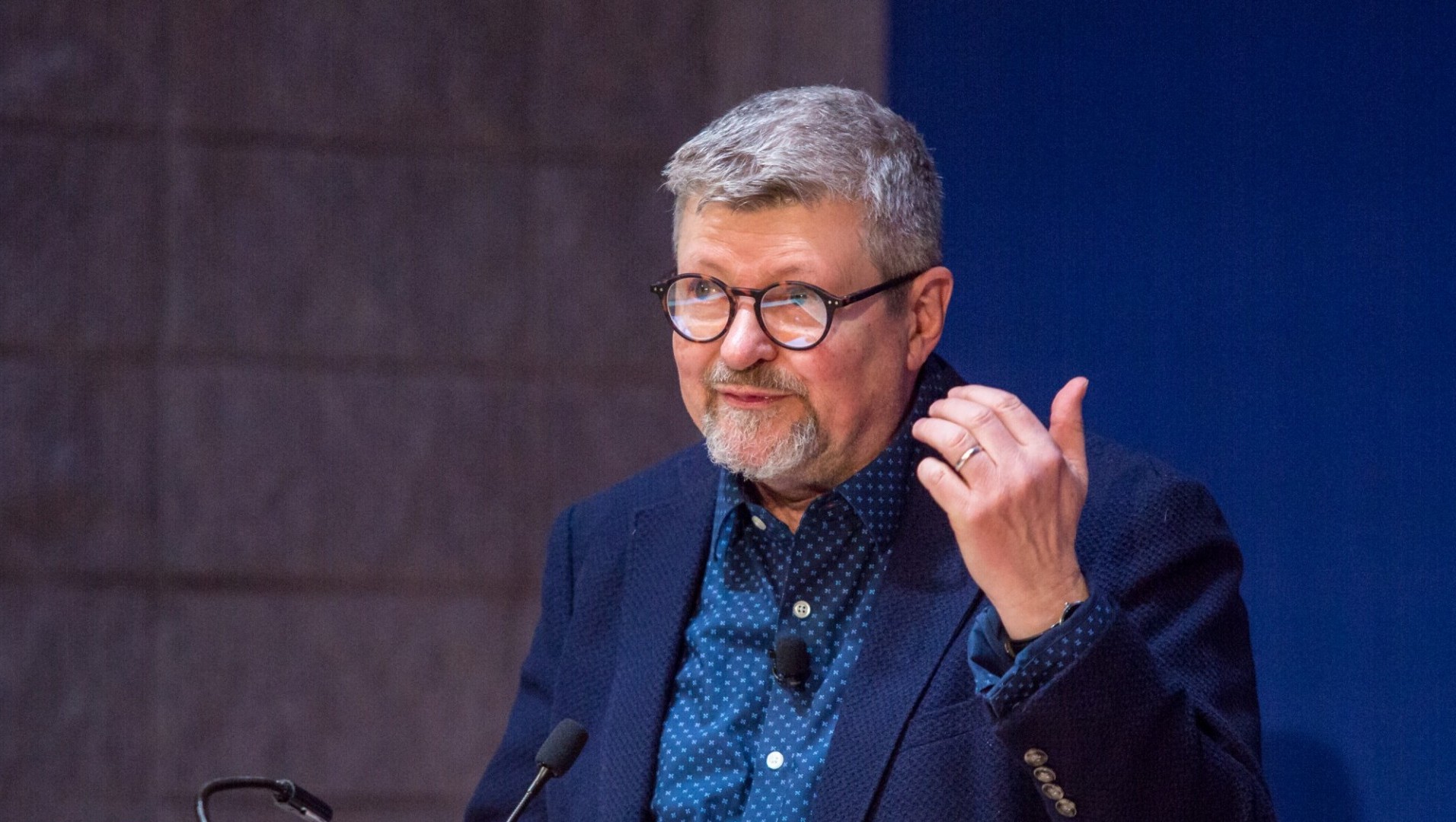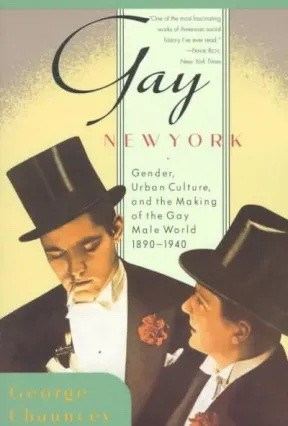Faculty Profile: George Chauncey
George Chauncey, DeWitt Clinton Professor of American History and director of the Columbia Research Initiative on the Global History of Sexualities, spoke with us about his research and about being part of the inaugural LGBTQ+ cluster hire.
Can you speak about your background and upbringing and what led to your interest in your current field?
I grew up in the South as the child of a Presbyterian minister who was active in the civil rights movement in the 50s and 60s. We moved several times, because things became difficult at the churches where he was a minister. It has always had a profound influence on me to grow up in a family where people took risks and stood up for what they believed, even when it went against the dominant view in their own community.
I became politically active in high school and college. I discovered in college that I had some talent and a lot of interest in history and originally was going to become an African historian. I got a fellowship at the end of college to spend a year in Zambia doing research on the labor and women's history of the colonial copper mining industry in what was then known as Northern Rhodesia.

I went to graduate school to study African history and actually published my first academic article in the Journal of Southern African Studies. Over the course of my first year of graduate school, I realized that I found working on LGBTQ history much more compelling. In those days, there were very few people working in that field, and there were a lot of obstacles.
One of my great mentors in graduate school at Yale was someone who was not in my field at all. John Boswell published a very important book 1981 called Christianity, Social Tolerance, and Homosexuality, which was a sweeping overview of the first millennium of Catholic teaching about homosexuality, and it argued against what everyone thought at the time. Early on, he argued, the Catholic Church had actually been indifferent, or even supportive, of what today, we would call gay people. The work he was doing really inspired me to think that this was possible and important, and so I switched fields. I became a US historian, with the idea that I would do this work.
I wasn't sure what to write about, but this was the 1980s, the heyday of US social history. It was a time when community studies seemed like a really rewarding way to get into the history of everyday life of marginalized people who normally would have not made it into the historical record. I was very inspired by a series of books on early 20th century Black urban history, women's history, and so forth, and they provided models.
"This was the 1980s, the heyday of US social history. It was a time when community study seemed like a really rewarding way to get into the history of everyday life of marginalized people who normally would have not made it into the historical record."
I decided to write about New York for three reasons. One was that the city had been regarded as the homosexual capital of the United States for over a century. Secondly, it’s a huge city that has been well studied. Though I knew it would be difficult to find research materials, I figured that I could probably find archival records. The third reason is that New York was both a very large and a very complex city, with a complicated class structure and racial and ethnic conflict and diversity. I knew that I could explore many different questions, but it was also bounded, so I could look at change over time.
I moved to New York to write my dissertation. My archives were here and I wanted to be here. I had very poor funding, so for the first few years I was working almost full time just to pay the bills. I did research whenever I could grab time on Fridays or on the weekend. Eventually, I got a fellowship so I could devote all of my time to research.
What broader questions are you hoping to illuminate or address in your work?
To understand LGBTQ history, you have to realize that it is deeply caught up in broader trends. To understand the development of queer worlds in New York, I needed to understand—and explain in some cases, for the first time—many aspects of urban development, the development of gender norms, and various forms of masculinity that are influenced by class and race.
I needed to understand much more about the impact of the growth of commercial culture, leisure culture, and mass culture on creating new opportunities for queer life. There were also new forms of policing that tried to constrain that life, even if their broader object in the early 20th century was more often to control the lives of immigrants and young women who moved by themselves to the city. I realized that I had to put almost everything I was learning about queer history in a larger context, and that often gave me a way of thinking differently about that larger context. I was developing a kind of queer perspective on bigger issues in American history, and that was exciting.
"I needed to understand much more about the impact of the growth of commercial culture, leisure culture, and mass culture on creating new opportunities for queer life."
You said there weren't that many researchers doing this type of work. Did you find that challenging? Did you find others who were exploring similar issues?
Well, I found two features have been particularly rewarding. First, is that I get to share students with other faculty who share broadly similar research interests. When I teach my seminar on the history of sexuality and the city, part of what I love is the range of backgrounds that students bring. There are some who studied urban history extensively and others who know nothing about the history of the city, some who have a lot of background in African American history and others who don't. Because of the cluster hire and the growth of the Women’s, Gender, and Sexuality Studies at Columbia, some students have studied queer theory, and can bring that to the conversation.
Because of the courses that my colleagues are teaching, I now typically have a core of students in my classes who are very familiar with theoretical or conceptual questions, and I can contribute knowledge about history and about historical methods. This also gives me more people to talk with and work with on projects. For instance, Camille Robcis (a colleague in my department) and I are working on a symposium on the development of anti-gender politics across Europe, Latin America, and the United States. It has been great to have a colleague like that, who I can talk with about these issues and work with to generate new knowledge.

What opportunities do you think being part of the inaugural cluster hire at Columbia have presented for you?
Well, I found two features have been particularly rewarding. First, is that I get to share students with other faculty who share broadly similar research interests. When I teach my seminar on the history of sexuality in the city, part of what I love is the range of backgrounds that students bring. There are some who studied urban history extensively and others who know nothing about the history of the city, some who have a lot of background in African American history and others who don't. Because of the cluster hire and the growth of the Women’s, Gender, and Sexuality Studies at Columbia, some students have studied queer theory, and can bring that to the conversation.
Because of the courses that my colleagues are teaching, I now typically have a core of students in my classes who are very familiar with theoretical or conceptual questions, and I can contribute knowledge about history and about historical methods. This also gives me more people to talk with and work on projects. For instance, Camille Robcis (a colleague in my department) and I are working on a symposium on the development of anti-gender politics across Europe, Latin America, and the United States. It has been great to have a colleague like that, who I can talk with about these issues and work with to generate new knowledge.
I know you've been part of some of these conversations about the next round of cluster hires and in LGBTQ+ research. What do you hope this next round will bring to Columbia?
Honestly, more people. The more the merrier.
How would you describe the climate for LGBTQ+ scholars at Columbia?
American universities have changed over the last generation as American society as a whole has changed, and certainly Columbia and Barnard have changed. Lesbian and gay students feel much more welcome and integrated into the life of the college and less marginalized. I think there's still a lot of work to be done. Trans students are still encountering many more issues as students. I do feel like there is a real commitment to working on those issues. That’s the important thing.
As someone who's lived through a lot of change, and someone who studies change as a historian, I know that change does not happen overnight. It's a long term struggle and a long term process.
There are many worrisome signs on a nationwide level about issues of gender and sexuality, but I think that in the institutional, university, domain, we have made a lot of progress and we're continuing to progress.
What are you looking forward to over the next few months, either professionally or personally?
I'm really looking forward to getting more work done on a book I've been working on for a long time. It’s about queer culture and everyday life in the segregated neighborhoods in postwar New York. That book is nearly finished. This summer I'm working on it every day, and I still find it incredibly rewarding and exciting. I also hope to enjoy some nice meals and walks in the park; I totally love living in Morningside heights. But the best part of summer is being able to get up and sit at my desk and write every morning.
Is there anything else that you would like to add?
I find Columbia to be a really great place to teach. There are 200 students in my lesbian, and gay history class now, and I find their excitement about this subject very inspiring.
